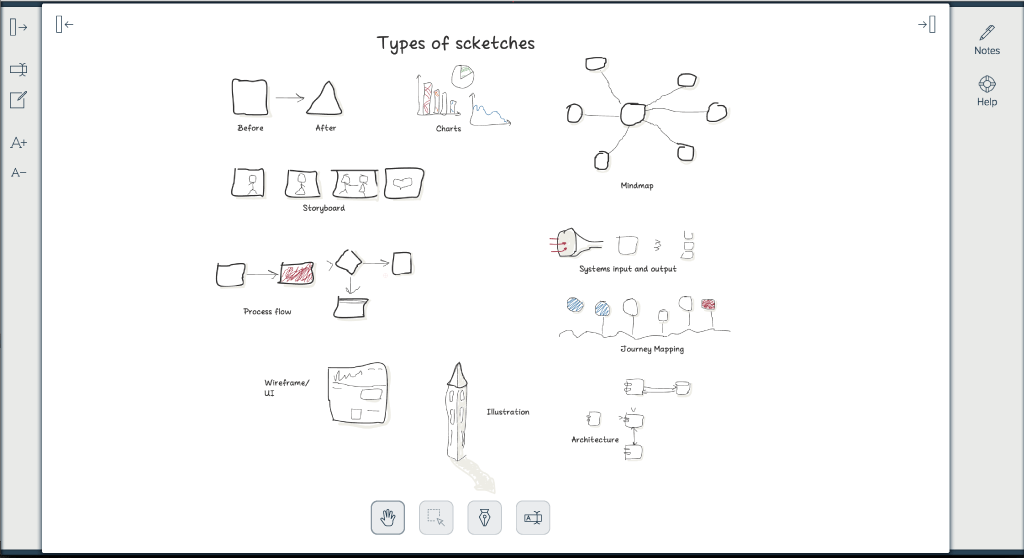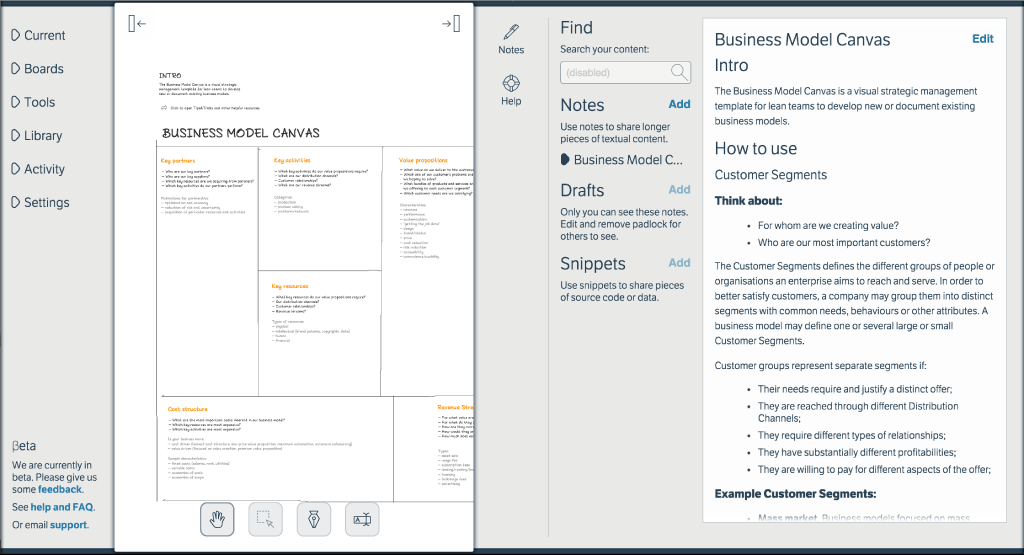
Although seriously long in the tooth and being disrupted by a plethora of startups, for many years Skype has existed as an almost ubiquitous app in any remote team’s toolkit.
So it seems apt that a new startup founded by a team of ex-Skype employees is set to tackle another aspect of online collaboration. Deekit, which exits private beta today, is a virtual and collaborative whiteboard to help remote teams work smarter.
The Tallinn, Estonia-based startup is headed up by founder and CEO, Kaili Kleemeier, who was previously a Head of Operations at Skype. She and three colleagues quit the Internet calling giant in 2012 and spent a year researching ideas in the remote team space. They ended up focusing on creating a new virtual whiteboard, born out of Kleemeier’s experience collaborating with technical teams remotely, specifically helping Skype deal with incident management.
“Working with remote teams has been a challenge in many ways – cultural differences, language differences, all the time people talk about the same things in different ways, sharing information across all locations,” she recalls.
“But at the time of an incident, you need to put everything on steroids – explain things faster, solve things faster, be extremely transparent and so on. This experience literally lead me and the team to research in depth how can you collaborate really effectively.”
Part of the solution is to bring back the humble whiteboard, but one that is accessible via any HTML5 web browser, with dedicated mobile and tablet apps to follow. “Deek” is a Romani word for looking. As in “deek and you shall see”. The idea being that showing is often quicker than telling.
“Simple conversations are not effective when it comes to complex problem solving, sharing knowledge or brainstorming around creative ideas,” says Kleemeier. “For example, when developers are discussing an architecture change, a whiteboard is the most natural thing to jump to. With simple boxes and arrows you make a point within just a couple of minutes. It also applies in design, sales, working with team processes, product planning and much more.”

The Deekit app offers all of the whiteboard features you’d expect, such as drawing tools and the ability to add text. In addition, you can pin notes on the side, and the whole app is collaborative: anybody can contribute no matter where they are and in realtime. Boards can also be shared and archived for future reference.
Another feature Kleemeier and her team have focused on is offering templates. These aren’t just simple design templates but also provide extensive instructions, such as how to run a business plan whiteboard session, or brainstorming a product roadmap.

But, of course, virtual whiteboards aren’t new by any measure. Competitors in the space include Realtimeboard, Stormboard and Murally. Or even enterprise collaboration apps like Confluence and Sharepoint.
“Most enterprise software is overwhelming,” argues Kleemeier when asked about competitors. “Piles of tools and buttons that make you focus on choosing the tools and how to use them. When designing Deekit, we decided to take that all away. Deekit is designed to be simple and clean. To know what you want, before you want it. To provide the right tools when needed and keep them out of the way when not. So that you can focus on the task at hand — discussing your idea.”
Comments
Post a Comment